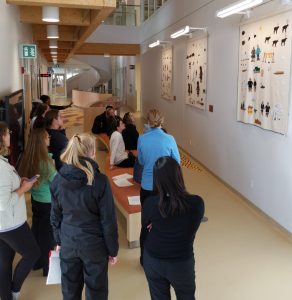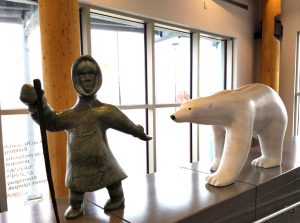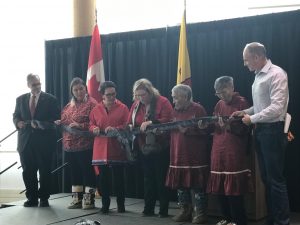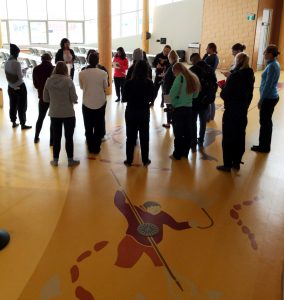We are thrilled to learn about the official opening of the Canadian High Arctic Research Station (CHARS) campus in Cambridge Bay, which will provide Canadian and International researchers a world-class facility to conduct cutting edge research year-round in the Arctic.
The campus provides a welcoming space and was designed to facilitate an inclusive collaboration between scientists and Indigenous knowledge holders. Developed in close consultation with residents of Cambridge Bay, it features many references of Inuit culture, with Inuit art featured prominently in the Main Research Building.

As a place where Indigenous knowledge is recognized as being fundamentally important to our understanding of the Arctic, the CHARS campus offers a rich, collaborative environment where the creation of new knowledge that is needed to address the unique challenges of climate change in Canada’s North can occur.

Dr. John Nightingale, One Oceans Expeditions Senior Science Advisor and Member of the Board of Directors of Polar Knowledge Canada was in Cambridge Bay to participate in the opening. Dr. Nightingale was part of the development of the concept, the design, and as a POLAR Board member, the construction of this major addition to arctic research capability. John notes that it was both heartwarming and satisfying to see well over 300 community members at the opening ceremonies, and to see, and begin to understand, the hopes and aspirations the community has for CHARS.

On our most recent trip that departed from Cambridge Bay, a field school from the University of Waterloo travelling onboard our Classic Northwest Passage voyage were able to visit the facility and experience first-hand its innovative technology as well as its sustainable infrastructure such as the use of recycled and locally sourced materials, LED lighting and compost lavatories.

The campus itself was designed to allow for testing waste management technologies and alternative energy sources in the Arctic, and the energy performance of CHARS has been optimized to reduce costs, energy consumption and the use of diesel – which is the primary fuel source in Cambridge Bay.

The CHARS campus symbolizes a new chapter in Canada’s polar leadership and demonstrates how science and Indigenous knowledge will work together to develop evidence based policy that will help enable Northerners and all Canadians adapt to today’s conditions and plan for the future.
We operate expeditions from Cambridge Bay several times each year and look forward to collaborating with Polar Knowledge, CHARS, and the community in Cambridge Bay.
Interested in visiting the Canadian Arctic? Please speak to your preferred travel agent or call our experts to learn more.















